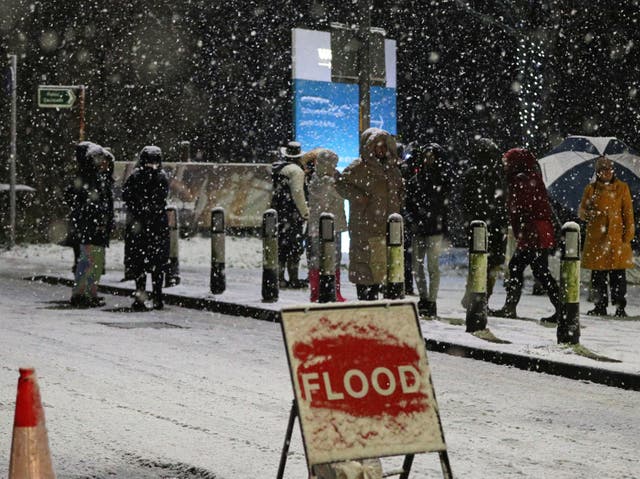Storm Christoph flooding a harbinger of worsening ‘climate shocks’, warns Environment Agency.

The flooding caused by Storm Christoph is a harbinger of worsening “climate shocks” in the UK, the chair of the Environment Agency has warned.
England and Wales faced a deluge this week as the storm brought high winds, heavy rainfall and snow. The flooding has so far affected around 400 homes in England and forced thousands more to evacuate.
Emma Howard Boyd, chair of the Environment Agency, visited an affected area in Didsbury, Greater Manchester on Thursday alongside the prime minister. She told The Independent: “We know from our research that from every home that is flooded, 16 other people are affected by flooding to infrastructure. You see it in the roads, the rail, the disruption to sewage works.”
Storm Christoph caused particularly heavy rainfall across northern England. Parts of North Yorkshire received more than their average January rainfall in just two days from Tuesday to Wednesday, according to provisional data from the Met Office.
Meanwhile, Honister in Cumbria received 123.8mm of rainfall on Tuesday alone – the highest amount seen in a single day this winter.
The storm arrived after a particularly wet autumn, meaning soils were already saturated and unable to absorb much additional water.
The sight of swollen rivers and rushing water seen across much of northern England this week are a visual sign of “the changing dynamic we’re now seeing in our climate”, said Ms Howard Boyd.
“The climate crisis is happening right now,” she said. “What we’ve seen in the past 24 hours should remind us that we continually need to enhance the way we prepare for the climate shocks that we’re going to see.”
Flood risk in the UK is affected by climate factors, such as heavy rainfall, as well as factors related to how land is used by humans.
Research from the Met Office shows that the UK’s climate is getting wetter. The amount of rain from extremely wet days has increased by 17 per cent since the late 20th century.
And future projections suggest that the UK is likely to see warmer and wetter winters as emissions continue to rise.
There has not yet been an assessment to quantify the potential influence of climate change on Storm Christoph’s heavy rainfall. However, previous research found heavy rainfall seen during Storm Desmond, which caused flooding in northern England and southern Scotland in 2015, was made around 40 per cent more likely by human-caused climate change.

(Peter Byrne/PA)
Stronger response and protection measures will be needed to meet the flooding challenges posed by more frequent downpours, said Ms Howard Boyd.
“We need to make sure there is enough overall funding to make sure that, across the emergency services, we are ready for the types of experiences that we’ve witnessed this week,” she said.
In November 2020, Matt Wrack, general secretary of the Fire Brigades Union, told The Independent that firefighters were struggling to cope with an increase in the number of flooding events requiring a fire and rescue service response amid staff cuts.
“Firefighters are on the frontlines of the climate crisis,” he said.
“This manifests itself in extreme weather events such as major floods, which have certainly increased over the past 15 years and have become a much more regular area of work for firefighters.”
“I think the test about whether the government is serious about this issue is what it does about those who are asked to face the impacts of climate change.”
Across the UK, there are now 11,200 fewer firefighters than there were a decade ago, according to official data.
In response, a Treasury spokesperson said: “The 2019 Spending Round increased fire and rescue services budgets to £2.3bn in 2020-21, with standalone Fire and Rescue Authorities seeing an increase in their core spending power of 3.2 per cent in cash terms.”
23 January 2021
INDEPENDENT




